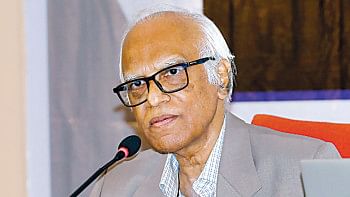Landmark environmental law verdicts

While our higher judiciary has no original jurisdiction on environment matters, its writ jurisdiction has been frequently invoked in the last few decades for protecting and preserving our environment. On the occasion of 5th June, the World Environment Day, let us revisit some notable decisions of our apex judiciary on environment matters.
HCD declares rivers as ‘legal persons’
Following a report in The Daily Star titled – ‘Time to declare Turag dead’, Human Rights and Peace for Bangladesh filed a writ petition on the legality of earth filling, encroachment and development of structures along the banks of Turag river. Thereafter, the HCD accorded legal entity to Turag along with all the other rivers of Bangladesh, in a bid to save our rivers from being polluted and encroached upon.
Liberalising the concept of ‘locus standi’
In Dr. Mohiuddin Farooque v Bangladesh (1995), our judiciary paved the way for public interest litigation by liberally interpreting the terms “person aggrieved” as anyone who, despite not being personally affected, has sufficient interest in the subject matter. The petition was filed challenging the legality of the experimental project of the Flood Action Plan (FAP) in Tangail. Following the court verdict, the government reformed the project, doing away with the initial scheme, and also introduced environmental impact assessment plan consulting the local people.
First instance of judicial recognition for environment protection
Before the insertion of Article 18A via the 15th Amendment, there was no constitutional provision for the protection of the environment. Thus, Dr. Mohiuddin Farooque v Bangladesh (1996) became the first instance of the judicial recognition of the protection of the environment. The petition was filed challenging the nuisance and sound population during the campaign for the 1996 general elections. The court ordered the Attorney General to take necessary steps for preventing damages to public and private property in the guise of election campaigning.
HCD orders phasing out of two stroke motor vehicles
Owing to the environmental hazards caused by two stroke three wheelers in Dhaka via smoke emissions and excessively shrill horns, Dr. Mohiuddin Farooque filed another writ petition seeking implementation of the provisions of the Motor Vehicles Ordinance, 1983. The HCD recognised that a pollution free environment is a component of the right to life guaranteed under the Constitution. Hence, it ordered the government to phase out the two stroke three wheelers and replace them with cleaner alternatives by December 2003. This verdict has led to CNG auto rickshaws being fielded in our streets ever since.
SC orders government to ensure safe drinking water
In Rabia Bhuiyan, MP v Ministry of LGRD & others, the writ petition was filed regarding the failure of the government to seal tube-wells contaminated with arsenic. The court acknowledged the extreme gravity of the situation and the health hazards of consuming arsenic-contaminated water by the public. It linked environment pollution to violation of the right to life under the Constitution and the need to improve the environment to uphold this right.
SC prohibits the construction of multi-storied shopping mall in violation of Dhaka City Master Plan
In Sharif Nurul Ambia v Dhaka City Corporation, the SC ordered to stop the construction of a 10-storied shopping complex in the reserved place for public car parking in the Master Plan of greater Dhaka, despite the activities that the respondents had carried out so far. It held that the construction began without any approval of the building plan and it would be detrimental to public health by causing traffic congestion and blocking the free passage of air and light in the area.
SC orders eviction of tanneries from Hazaribagh
In 2017, the SC upheld the eviction order of 155 tanneries from Hazaribagh and fined BDT 55,000/- each for polluting the neighbourhood and the Buriganga river. Environmentalists and the government had rallied against their operation and advocated for their relocation. A follow-up report in 2019 revealed that the tanneries had moved out of Hazaribagh. RAJUK now plans to construct parks, playgrounds, community halls, shopping malls and a site for indoor games in the area.
The writer is a student of law, University of Dhaka.


 For all latest news, follow The Daily Star's Google News channel.
For all latest news, follow The Daily Star's Google News channel. 



Comments